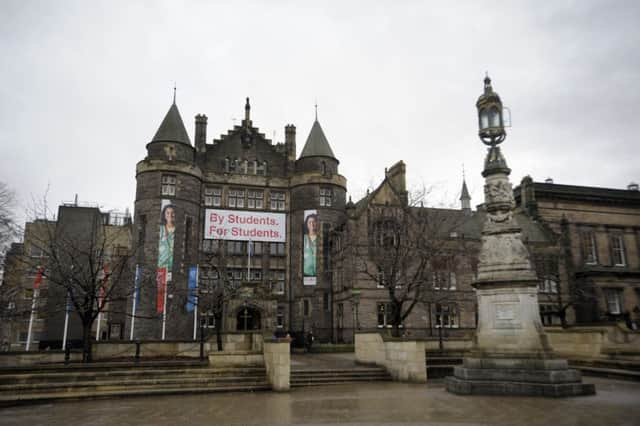Leaders: Writing off postgraduate loans makes sense


For years, Scotland has been blighted by a “brain drain” as many of our brightest and best seek opportunities south of the Border or overseas.
Now comes the suggestion that the situation can be in some way reversed by writing off the student loans of postgraduate students who choose to stay and work in Scotland after completing their studies.
Advertisement
Hide AdAdvertisement
Hide AdA review of postgraduate study by Professor Bryan MacGregor, on behalf of the Scottish Government, has concluded that postgrads should have a “clear and universal” entitlement to financial support for tuition fees. That would mean making student loans available for all postgrad courses, but could also extend to writing off loans after they complete their studies.
Higher education is an area where Holyrood has walked a distinct path from Westminster.
While the Scottish Government’s claim that free tuition for Scottish students has helped widen participation may be dubious, the policy has been long been popular in many quarters.
The decision to effectively write off potentially millions in postgraduate student debt will be seen by many as recklessly extending the principle of free tuition at a time when severe cuts are demanded in public spending. Currently, more than 70 per cent of full-time taught postgraduate students in Scotland fund their own studies.
But there is merit in the current proposals.
The report from Professor MacGregor, vice-principal of Aberdeen University, comes against a background of falling postgraduate numbers over the past decade, which is said to threaten Scotland’s future economic competitiveness.
Figures released last year showed the number of postgraduate Scottish students studying in Scotland fell by 22 per cent between 2004-5 and 2012-13 – from 22,340 to 17,325.
It is likely the cost of writing off a proportion of student loans would be offset by the huge economic benefit that would be brought to Scotland by retaining our best minds, not to mention the tax implications of retaining higher earners.
The writing-off of debts could be tied to the students paying income tax in Scotland and therefore only apply as long as those benefiting were contributing to the Scottish economy. There should also be restrictions on the courses to which is would apply.Scotland needs scientists, engineers and medical professionals – it doesn’t need a generation with marketing diplomas paid for at public expense.
Advertisement
Hide AdAdvertisement
Hide AdOf course, the situation would also need to be continually assessed to make sure we are getting those who fit the skills gaps and to be sure that it was delivering the mooted benefits.
Education secretary Angela Constance has said she will now “carefully consider” Prof MacGregor’s recommendations.
The academic’s suggestion for postgraduate finance is a serious one, which will require serious reflection.
Still on the road to Selma
THE global popularity of JK Rowling’s Harry Potter books is testament to the utterly engrossing world the author created around her eponymous boy wizard.
Sadly, it seems the ability many of us had to suspend our disbelief at the fanastical world of Hogwarts does not extend to the casting of a black woman to play Hermione Granger.
Noma Dumezweni, an Olivier Award-winning actress of some considerable experience, will play Hermione in Harry Potter and the Cursed Child, a two-part play based on a new story by Rowling, which re-imagines Harry Potter as an overworked father of three.
Despite an overwhelmingly positive response to her casting, the selection of a black woman has upset some Potter fans, mainly, it seems, because the actress who played Hermione in the Potter films – Emma Watson – is white. Rowling herself has said “white skin was never specified” in her description of the character in her novels.
But if the debate around who plays Hermione wasn’t depressing enough, it has only further highlighted the very real difficulties black actors continue to face.
Advertisement
Hide AdAdvertisement
Hide AdLast year, Lenny Henry called for legislation to reverse the “appalling” low percentage of black and Asian people working in TV. And Henry said the situation had “deteriorated badly” in recent years.
His concerns were echoed earlier this year by David Oyelowo, star of Hollywood films such as Lincoln and Selma. Oyelowo said the biggest problem is the preponderance of white, middle-class men in charge of commissioning. It will no doubt take more than the casting of a black Hermione Granger to change things, but it’s a start.